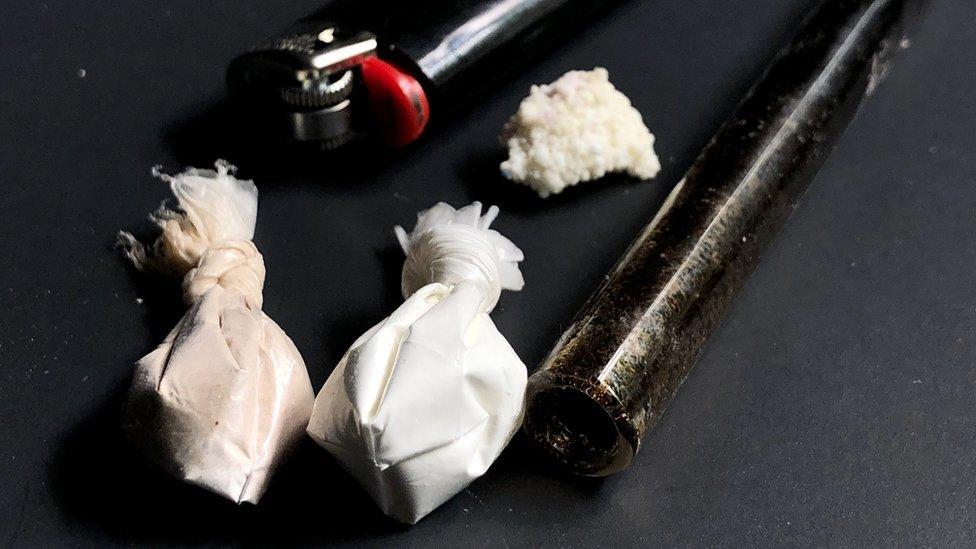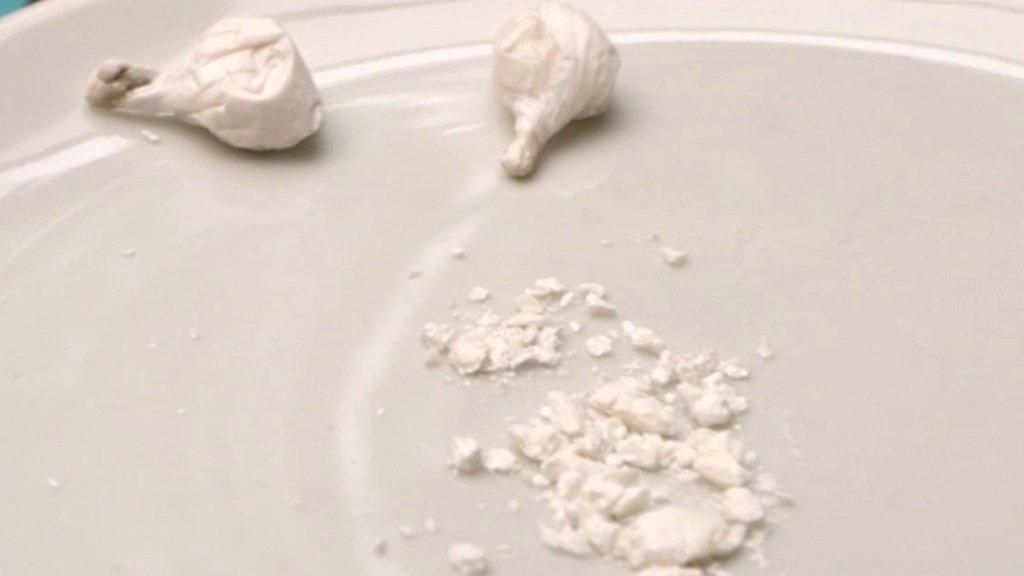US to end crack and powder cocaine sentencing disparity
- Published

The US justice department has moved to end the sentencing disparity between crack and powder cocaine offences, ending a policy widely seen as racist.
Attorney General Merrick Garland said in a memo that the policy "drives unwarranted racial disparities in our criminal justice system".
President Joe Biden had backed ditching the sentencing guidelines he himself crafted as a senator decades ago.
The new rule will take effect within 30 days. It does not apply retroactively.
Friday's updated guidelines call for prosecutors to "promote the equivalent treatment of crack and powder cocaine offences".
"The crack/powder disparity in sentencing has no basis in science, furthers no law enforcement purposes, and drives unwarranted racial disparities in our criminal justice system," said the justice department memo to federal prosecutors.
The policy was created by the 1986 Anti-Drug Abuse Act, which was crafted by then-Senator Joe Biden.
The law mandated a five-year minimum sentence for trafficking in 500g of powder cocaine or 5g of crack. Towards the end of his Senate career, Mr Biden disavowed the bill.
The now-president has led calls for the policy to be scrapped.
The sentencing gap has since narrowed from an 100-to-1 ratio to 18-to-1.
Mr Biden's own son, Hunter, has written about his personal struggle with drug abuse, including crack cocaine.
Racial justice advocates cheered Friday's move, saying it was needed to help reform a sentencing protocol that saw black Americans disproportionately incarcerated.
But they emphasised that ongoing congressional efforts to codify the change into law were key.
Senator Cory Booker, a New Jersey Democrat who is sponsoring legislation to change the law on cocaine sentencing, said: "Today's announcement recognises this injustice and takes steps to finally strike parity between powder and crack cocaine sentences when there is no pharmacological differences in the substances."
You may also be interested in:
Watch: Nick Beake investigates how Antwerp became the cocaine gateway to Europe
Related topics
- Published16 December 2022
